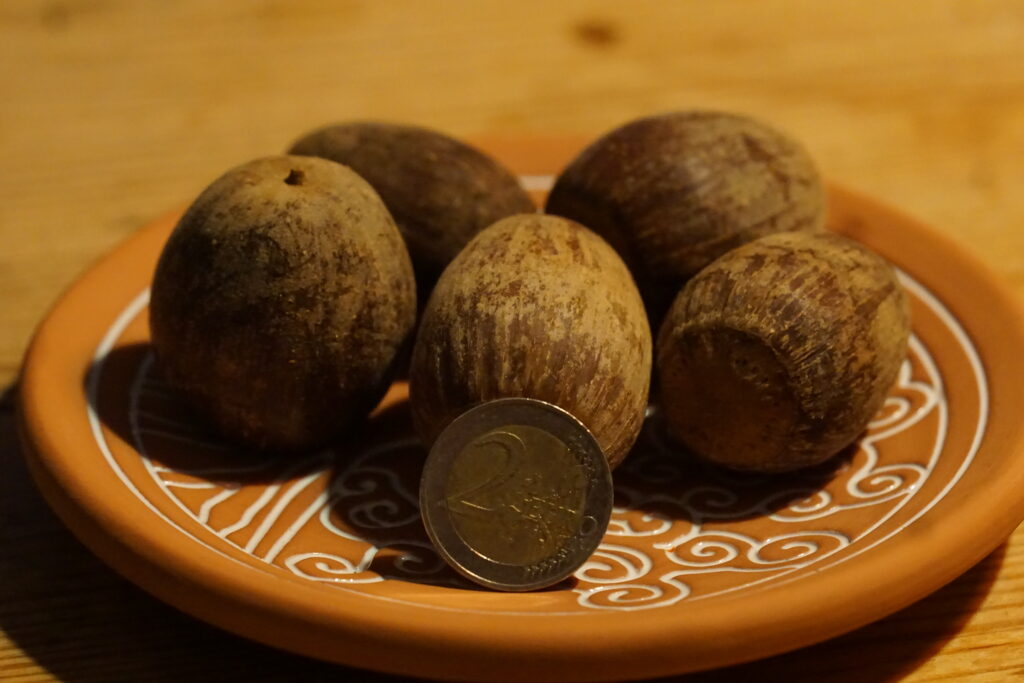We are taking a break for a few years
We are stopping sales for a few years for time reasons.
We are stopping sales for a few years for time reasons.
This page is no longer maintained. From now on you will only find our range of plants, acorns and oaks on Ebay:
Many other oak species can currently be found in our Ebay store:
https://www.ebay.de/str/klimasamen
Quercus wislizeni.
Quercus wislizeni is native to many areas of California and southwards to Baja California in Mexico.
Quercus arkansana: This oak species occurs in a few locations in the south-east of the USA.
It is considered endangered.
Quercus polymorpha:
The Mexican white oak is native to the state of Texas in the USA and is also found in Mexico.
Quercus shumardii
Quercus shumardii is one of the largest oak species in the red oak group. It is closely related to Quercus Buckleyi, Quercus Texana and Quercus Gravesii.
Quercus castaneifolia:
The distribution area is in Iran and Azerbaijan.
The species is thermophilic and mostly frost-hardy
Quercus eduardi:
Quercus eduardi grows in only a few regions in Mexico at altitudes above 2200 meters.
Qurcus infectoria veneris:
This species originates from the eastern Mediterranean region and western Asia. The tree only grows about 6 meters high.
Not frost-tolerant!
Quercus agrifolia:
The species is native to California. The species grows west of the Sierra Nevada from Mendocino County in the north southwards to the Mexican state of Baja California.
Quercus libani:
The Lebanon oak is native to Syria and Asia Minor
Quercus lyrata: The distribution area is in the northeast and southeast of the USA.
Quercus wislizeni:
Quercus wislizeni is native to many areas of California and south to Baja California in Mexico.
Quercus hintonionum
Originally found only in the Mexican states of Coahuila and Nuevo León.

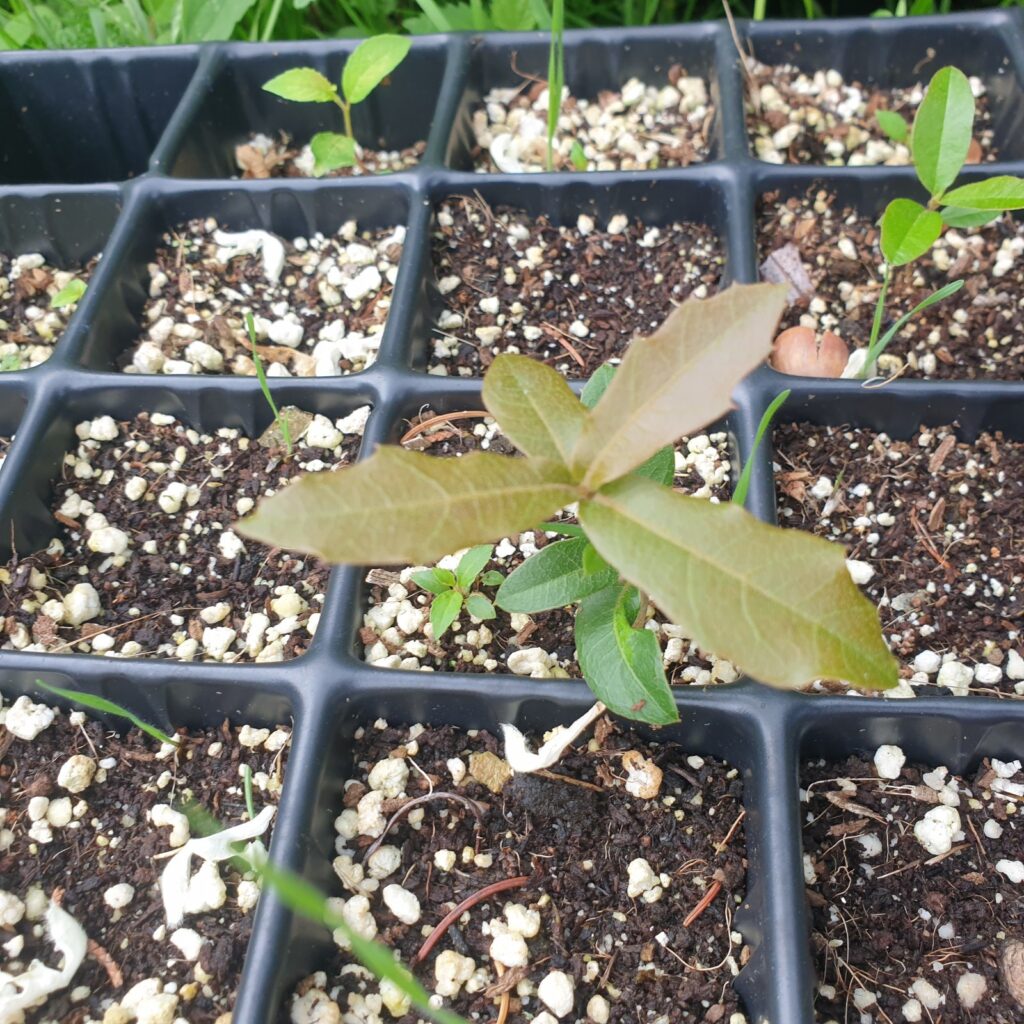
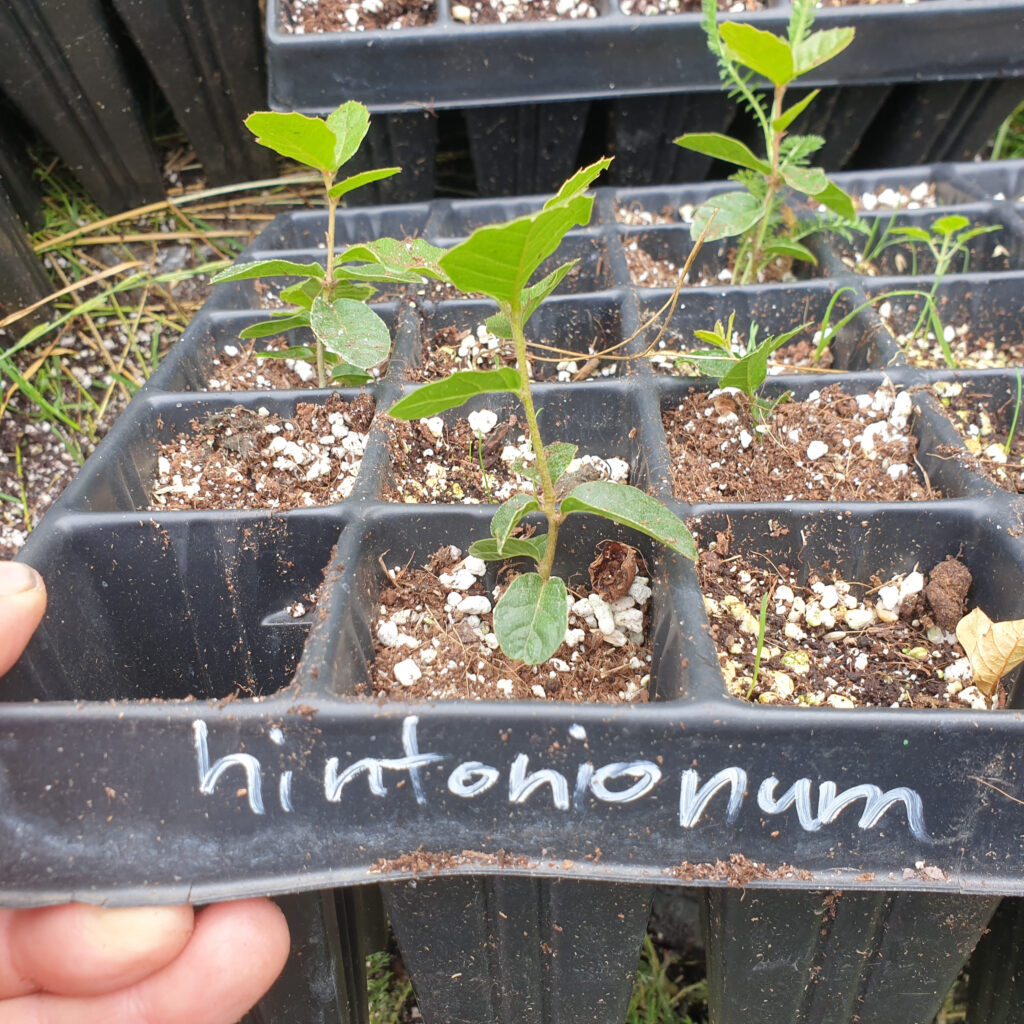
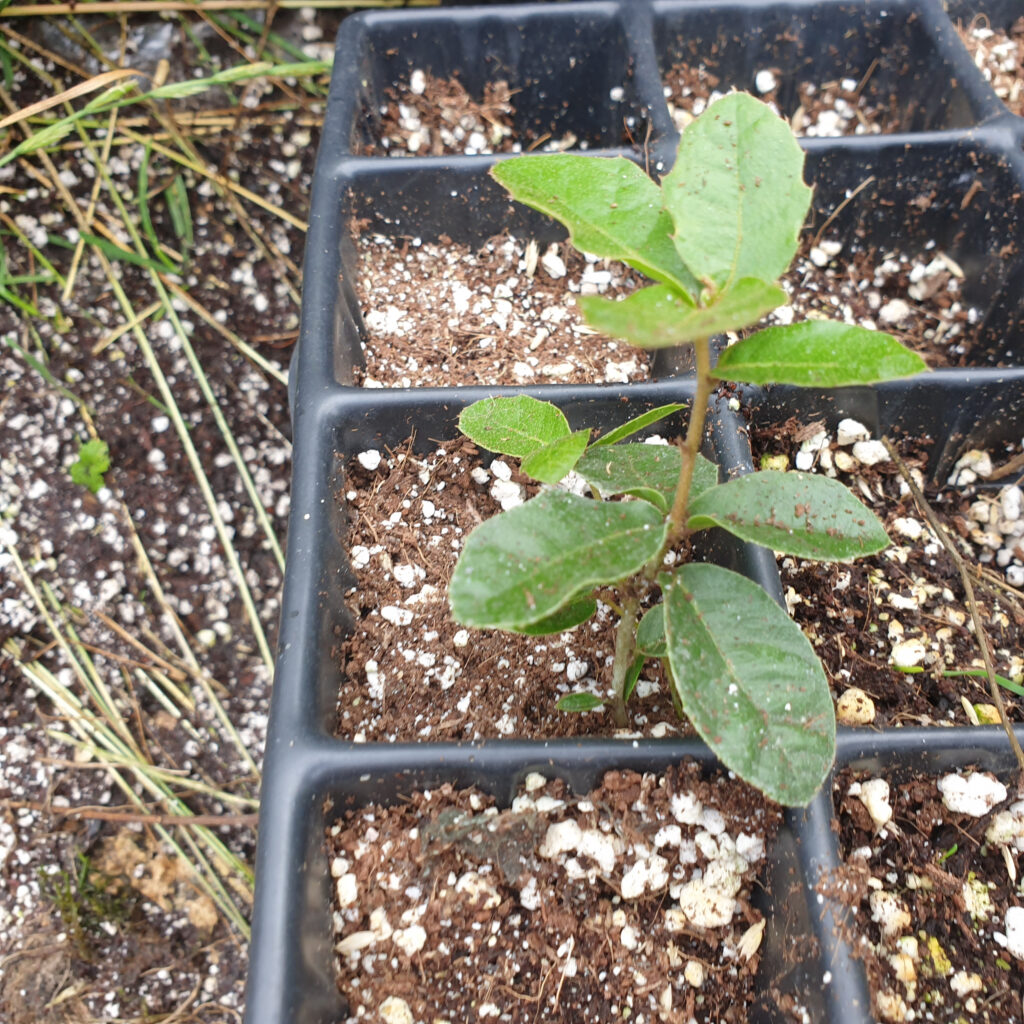
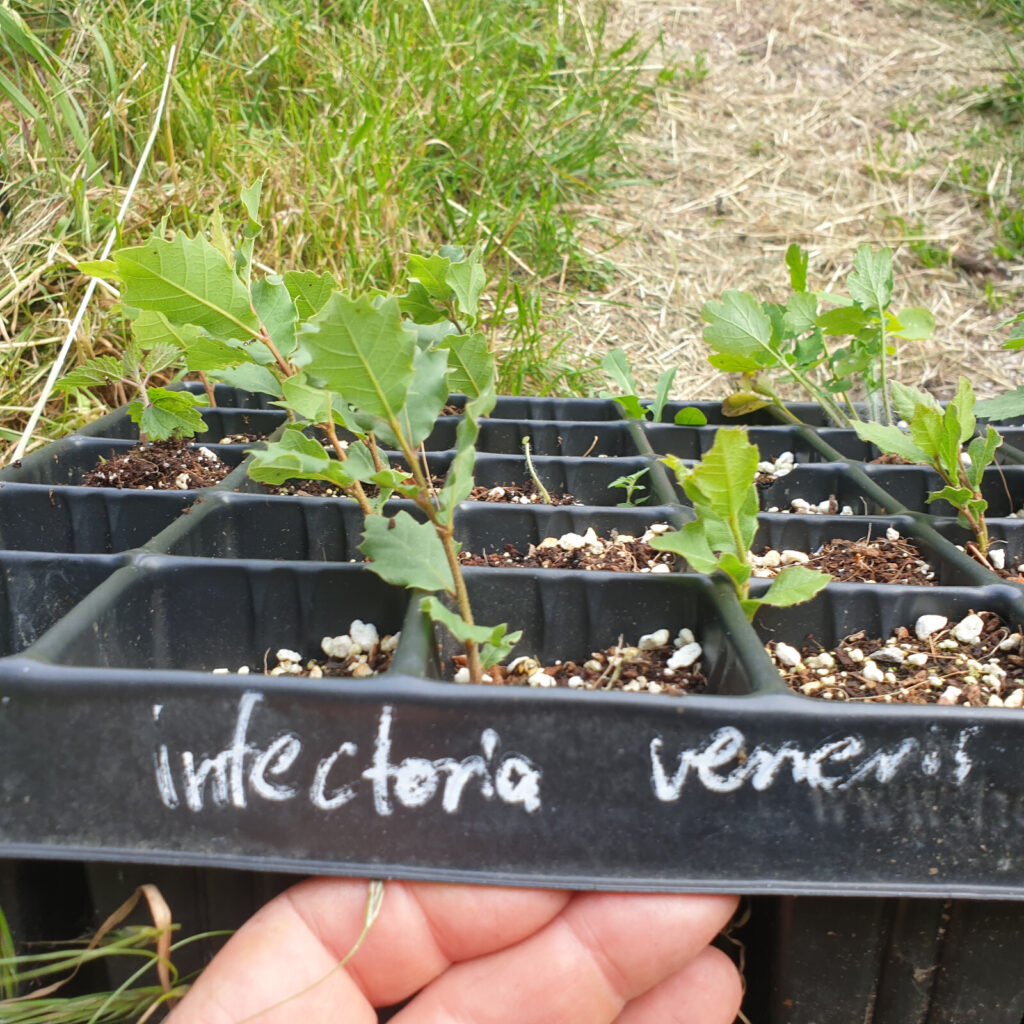




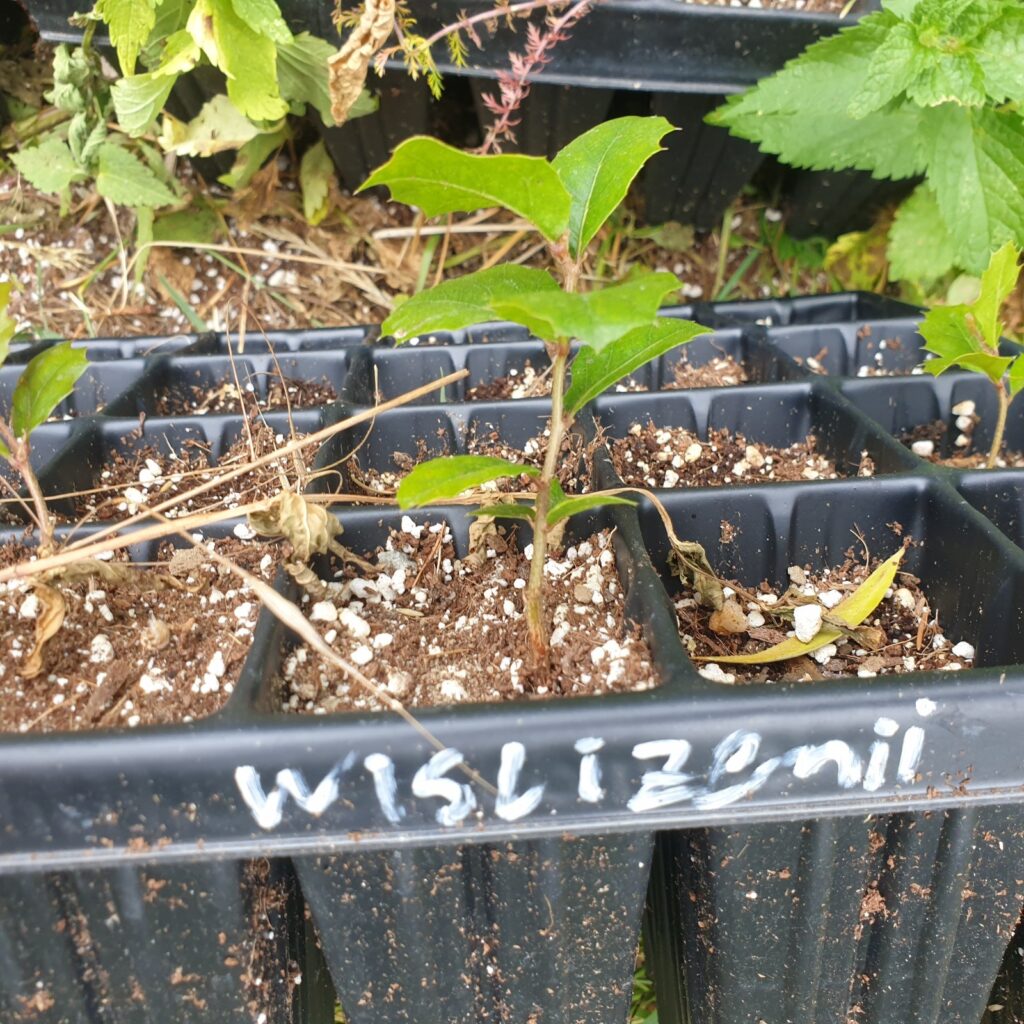
Some oak species and other special plants are for sale. The seedlings are between 5 and 15 cm high and are sent in small pots with coconut soil and perlite.
We currently have: Quercus hirtifolia, Prunus dulcis (almond tree), Quercus crassipes, Quercus frainetto, Quercus hartwissiana, Quercus acerifolia, Quercus buckleyi, Aesculus carnea (red horse chestnut), Aesculus hippocastanium (common horse chestnut).
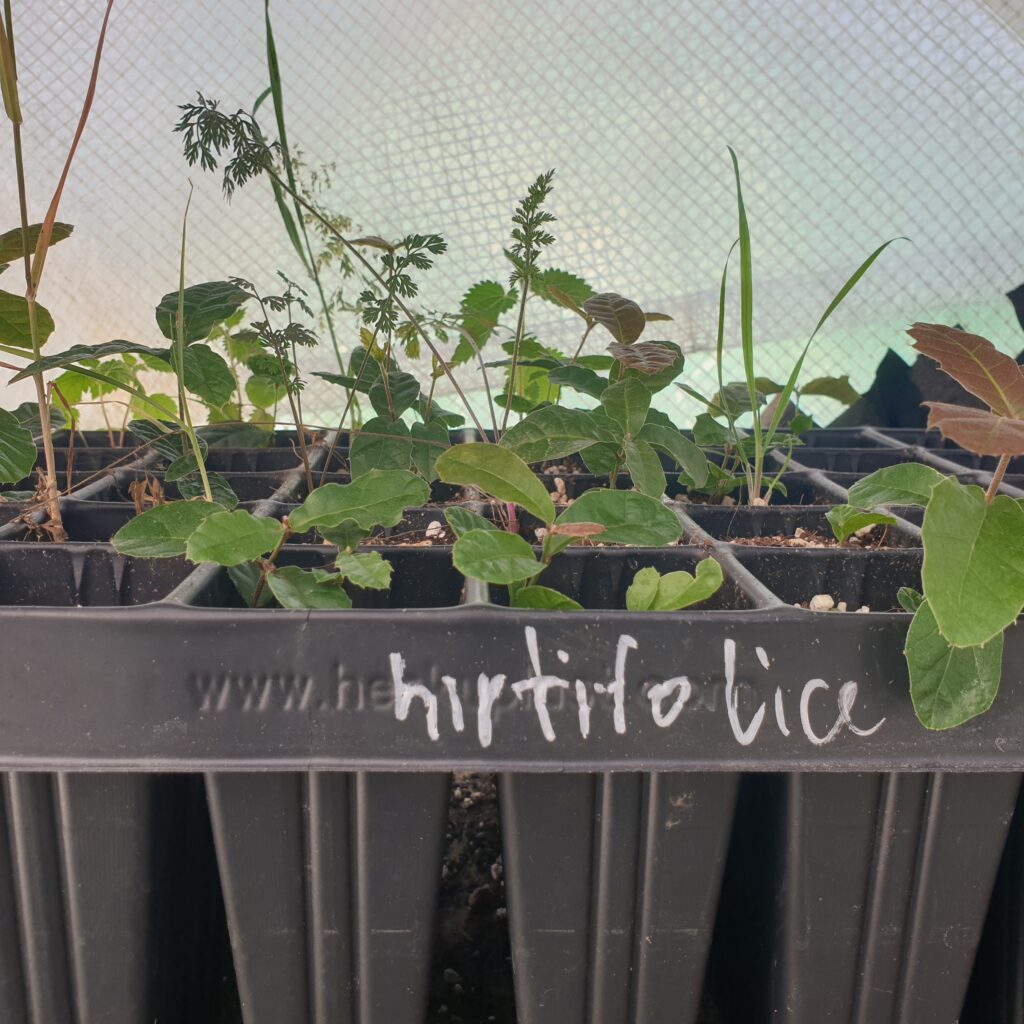
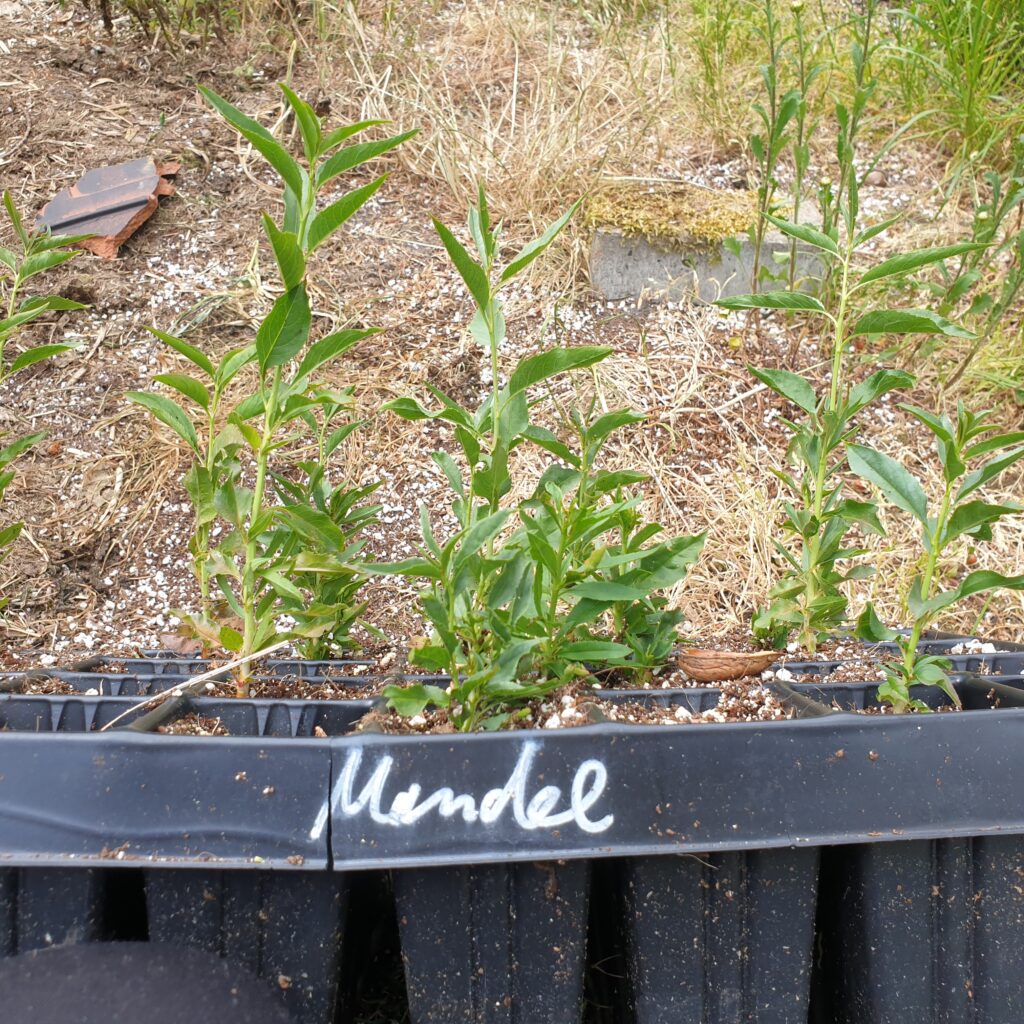
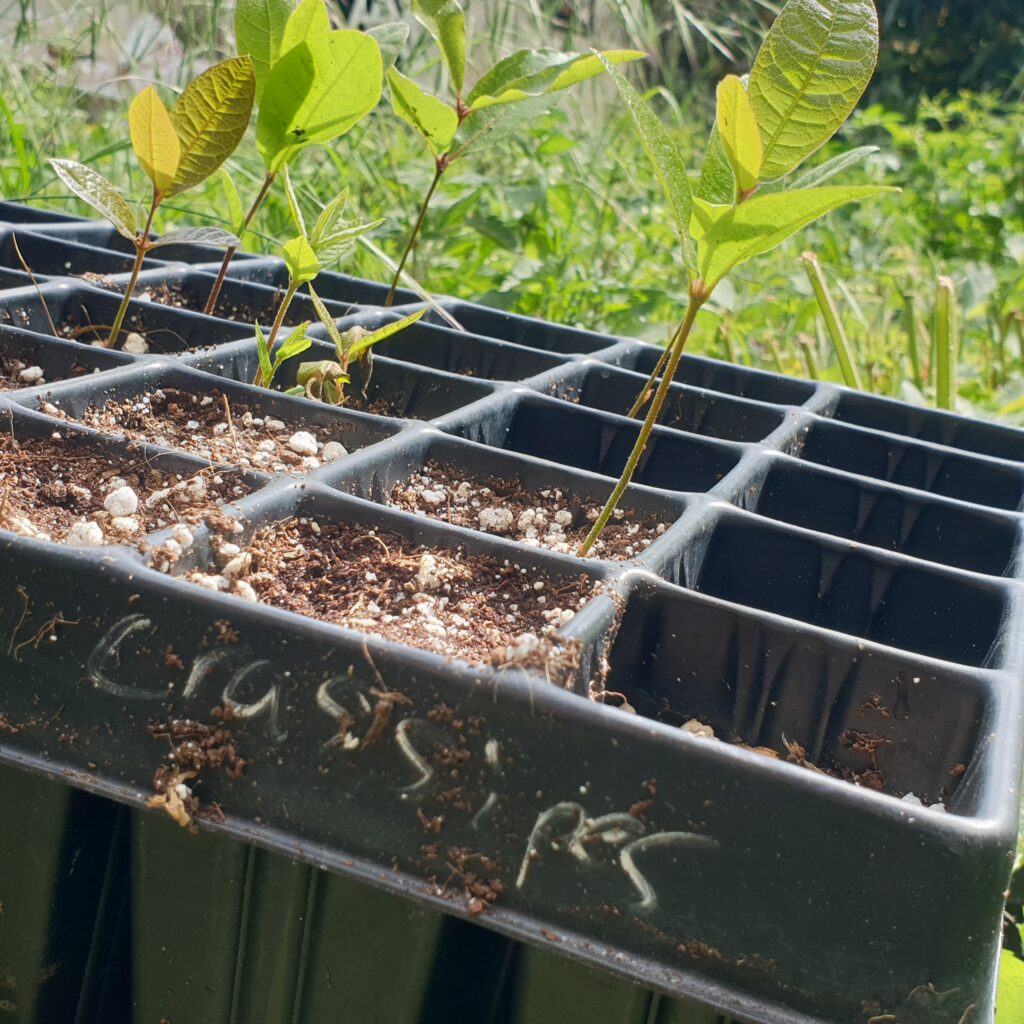


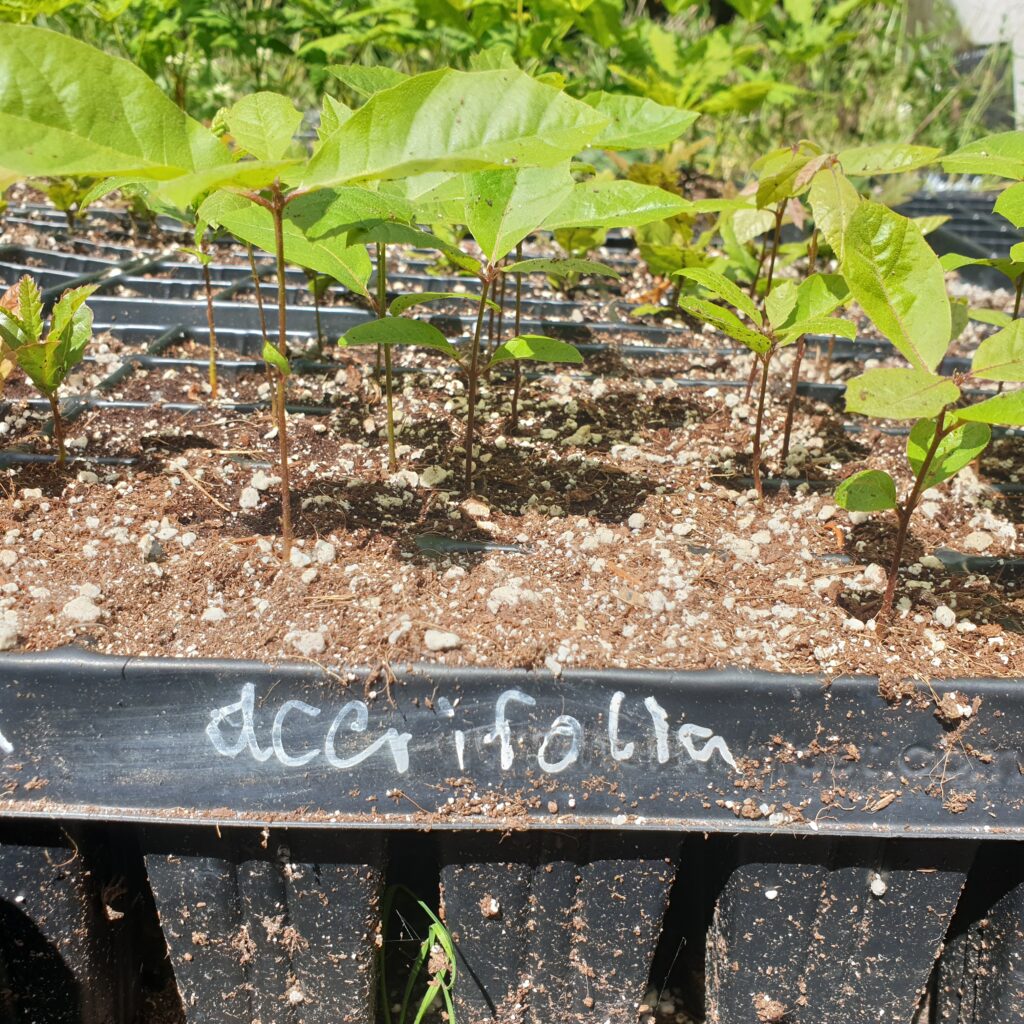

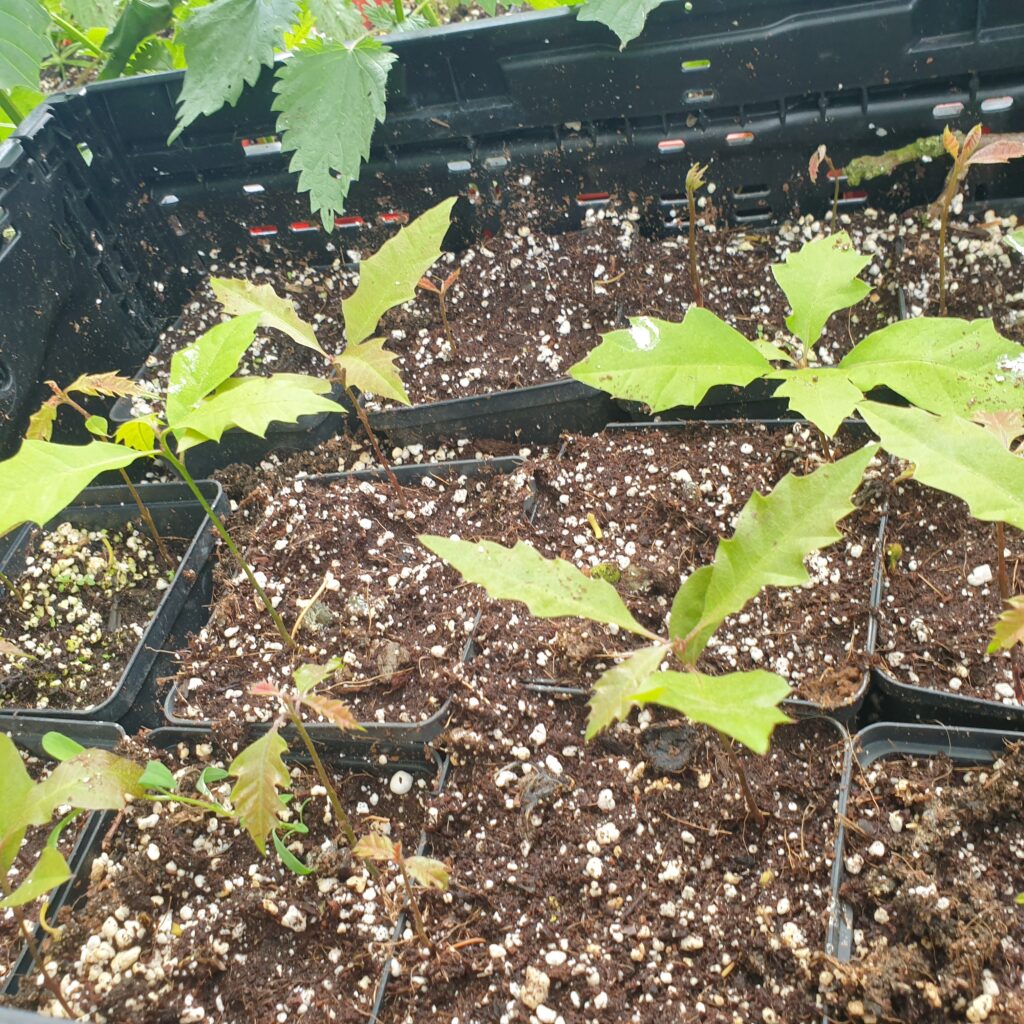
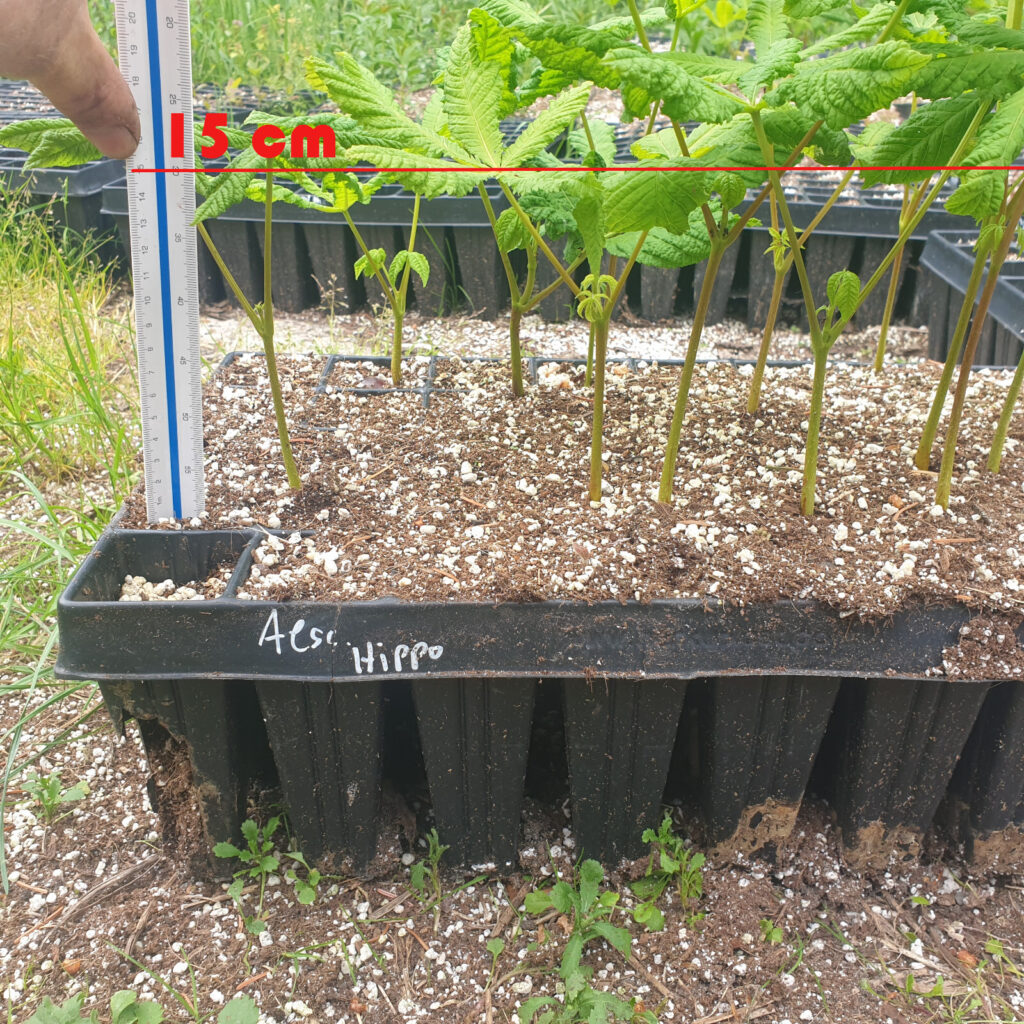
Many interesting climarobust species have been supplied. For example Ostrya carpinifolia, the European hop hornbeam. It thrives in large parts of the Mediterranean region, from Provence to Greece. The almond tree (Prunus dulcis) is of course also interesting and a real eye-catcher. Who doesn’t dream of it? To have a beautifully flowering almond tree in your garden (as a potted plant) in spring. Mediterranean flair in your own home. Or the olive (Olea europaea), which is usually found in Italy, Spain or Greece. The climate is changing rapidly. Of course, global warming is not good at all, but for the flora it means that many “climate trees” are now also migrating to Central Europe. And they are still guaranteed hot and dry summers.
Of course, there can still be freezing cold winters, so always bear the “hardiness zone” in mind when growing plants. Many species from hot regions are therefore better grown in pots that can be brought indoors in January, for example, if necessary. Something like this can look wonderful: A large terracotta pot and an almond tree, a caper bush or a chestnut tree in it. It creates the flair of a vacation in Tuscany, Sicily or southern Spain. And of course you are contributing to diversity.
Growing plants “from seed” is a great pleasure, and then there are the climatic trees 🙂 You look after the little seedlings, are happy when they get bigger, at some point they form the first buds, create the first shade growth…Wonderful.
E.G. we now have: Pistachio tree (Pistacia vera)
Feijoa sellowiana (Brazilian guava)
Calycanthus floridus (true spice bush)
Cupressus arizonica (Arizonacypress)
Acacia dealbata (silver acacia)
Myrtus communis (myrtle)
Capparis spinosa (caper bush)
“Wild olive” (Olea europaea var oleaster)
Red horse chestnut (Aesculus carnea)
Black walnut (Juglans nigra)
Take a look at the store: https://quercus.guru/produkt-kategorie/andere-baeume-ausser-eicheln/
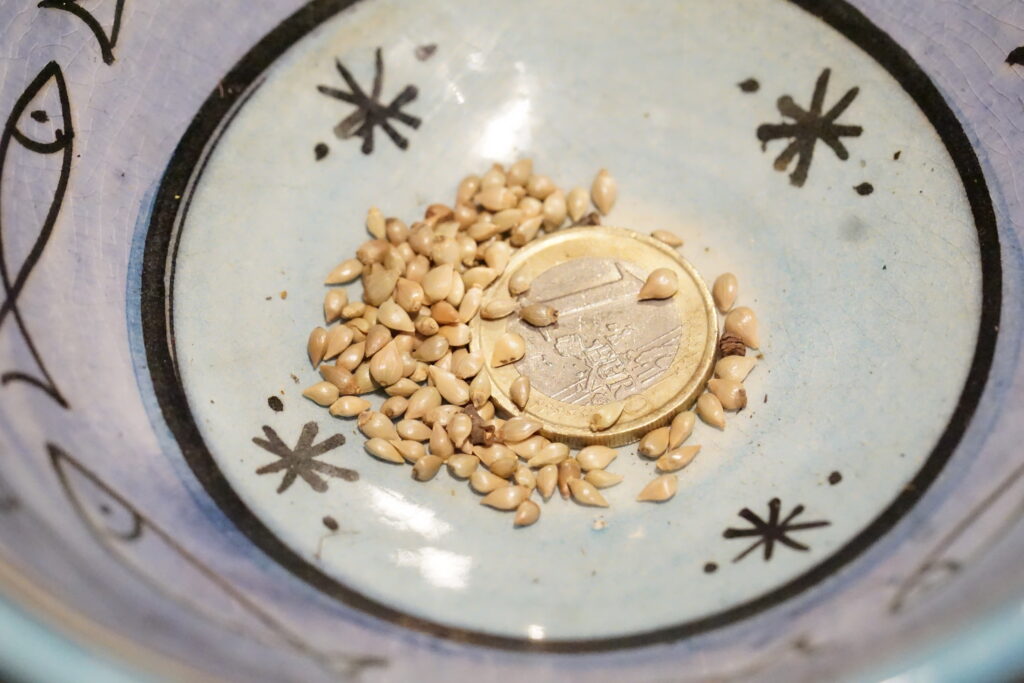
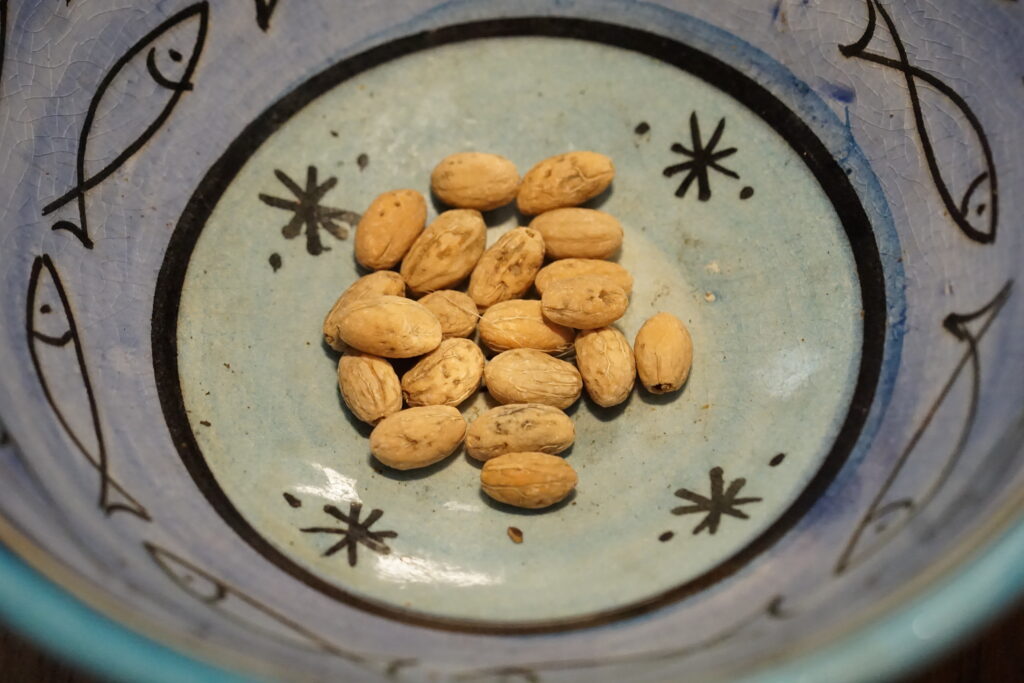
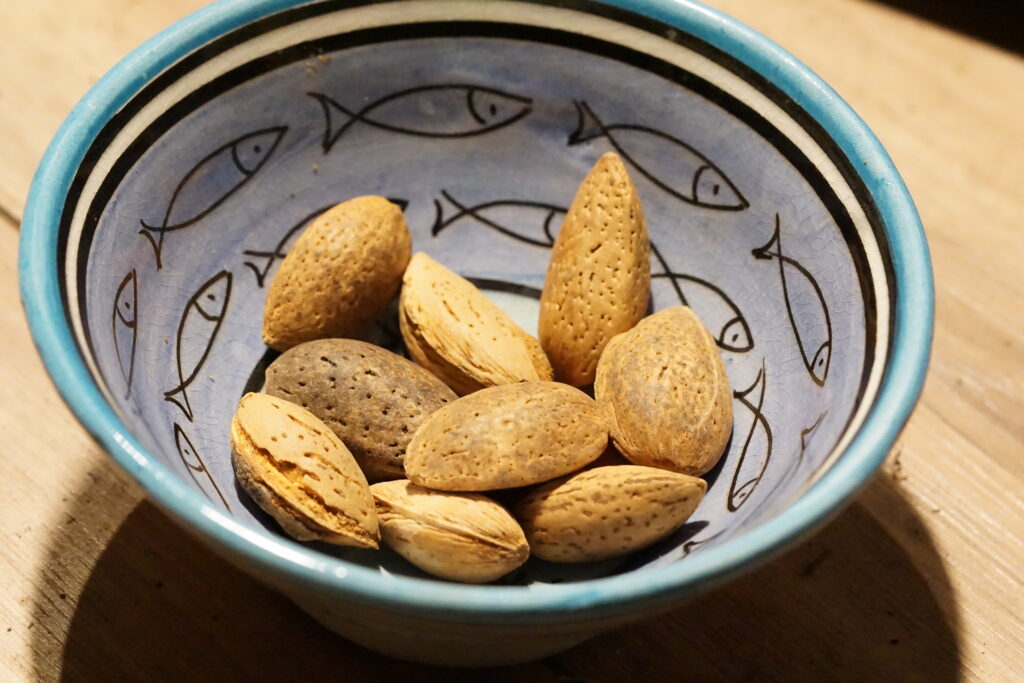
New in our store:
Quercus georgiana
Quercus alnifolia
Quercus infectoria subsp. veneris
Quercus senescens
Quercus mexicana x grahamii
Quercus acutissima
Quercus coccifera subs. calliprinos
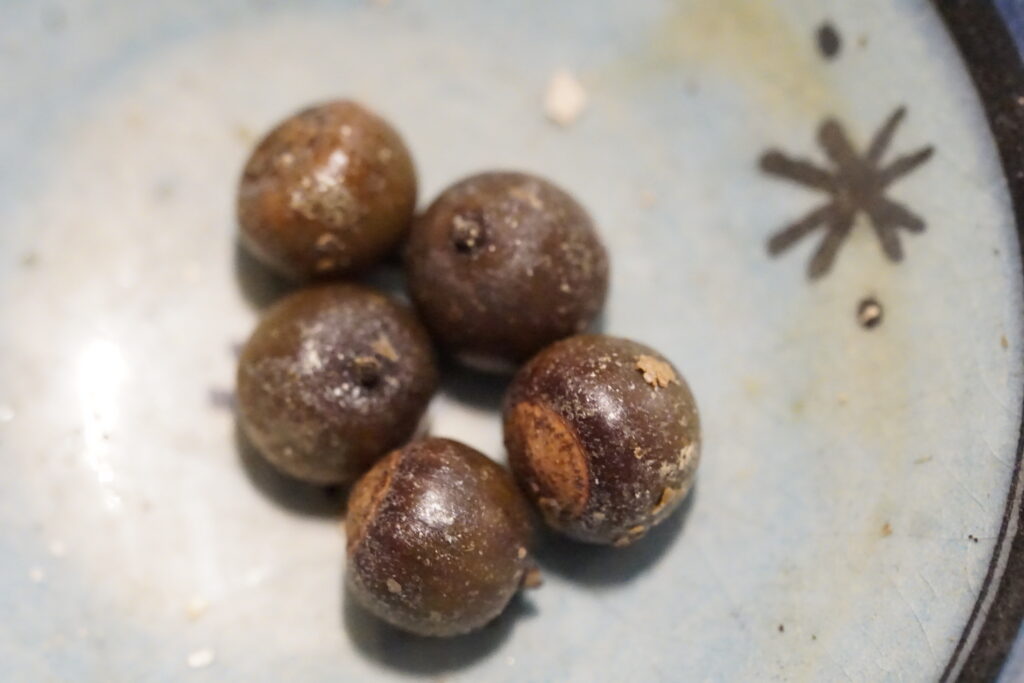
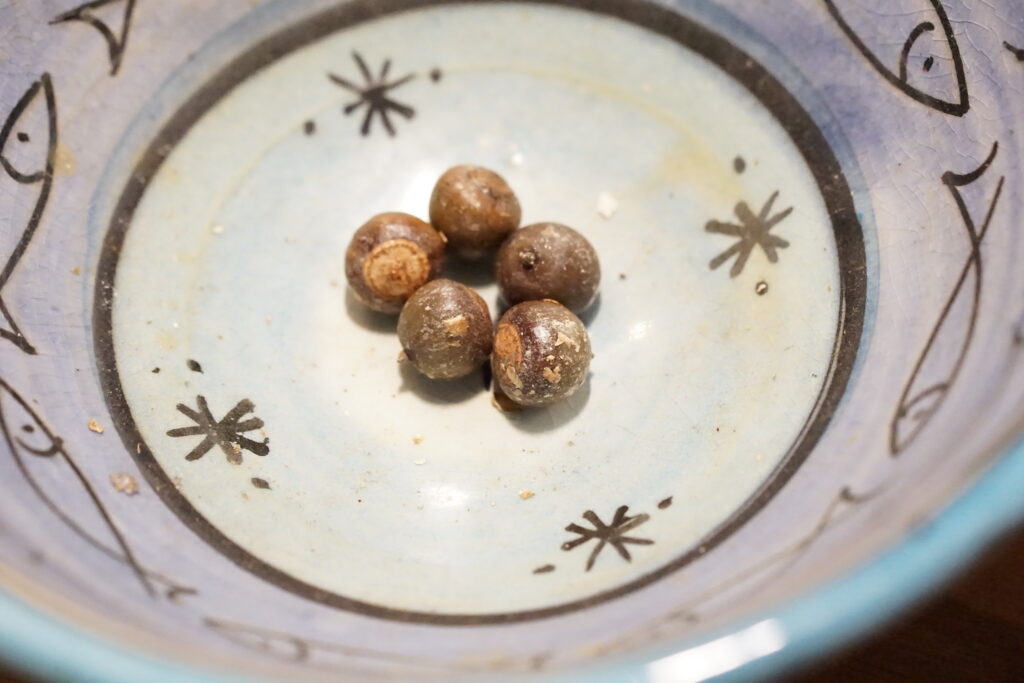
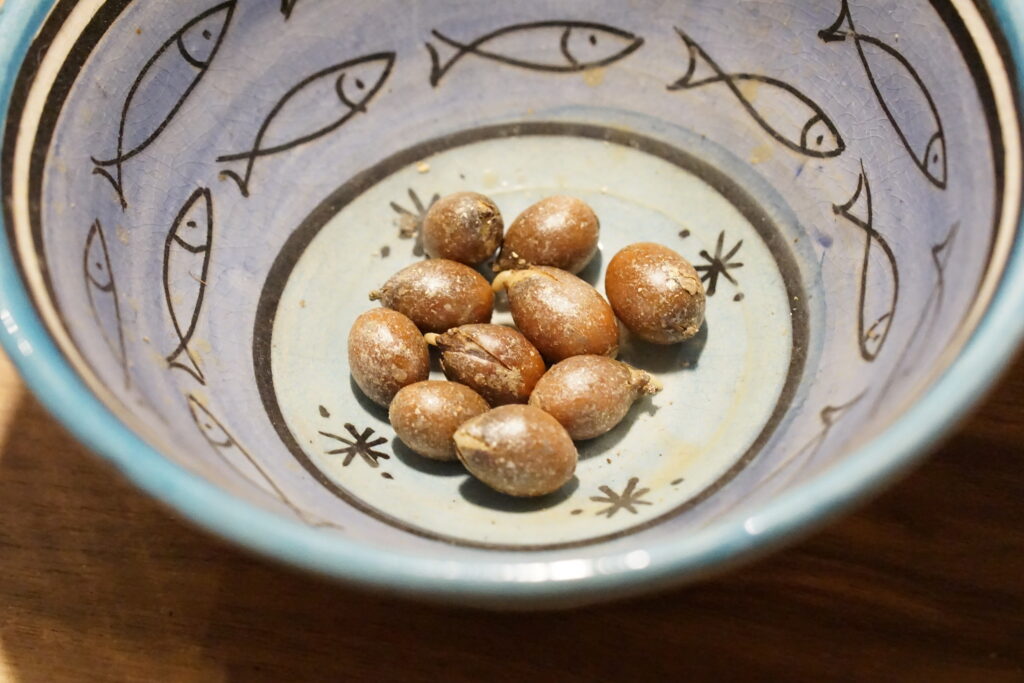
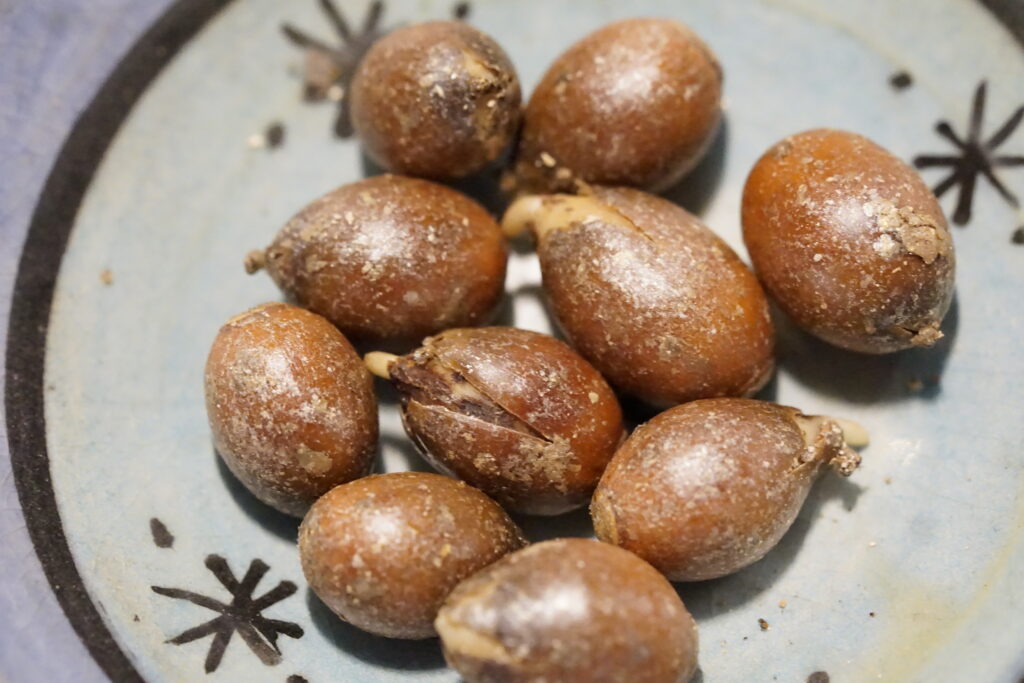
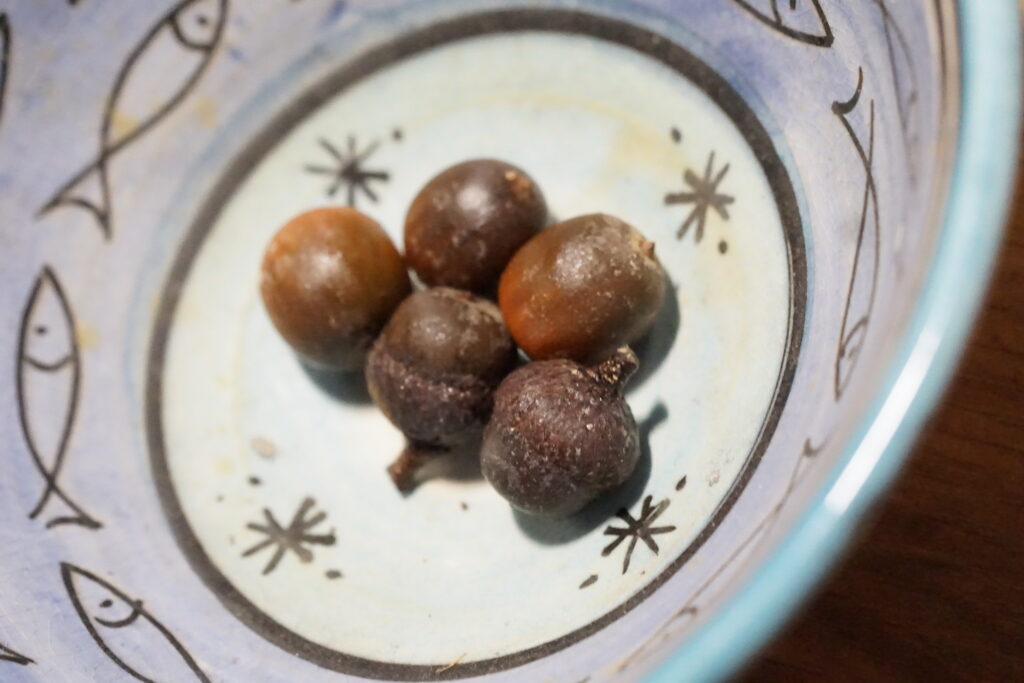
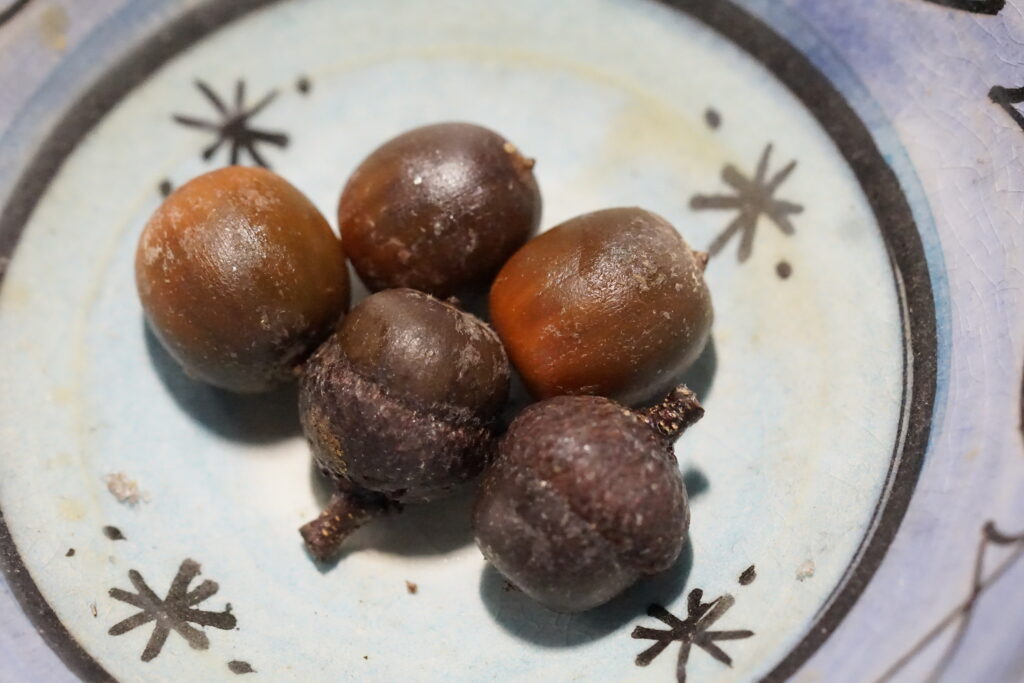
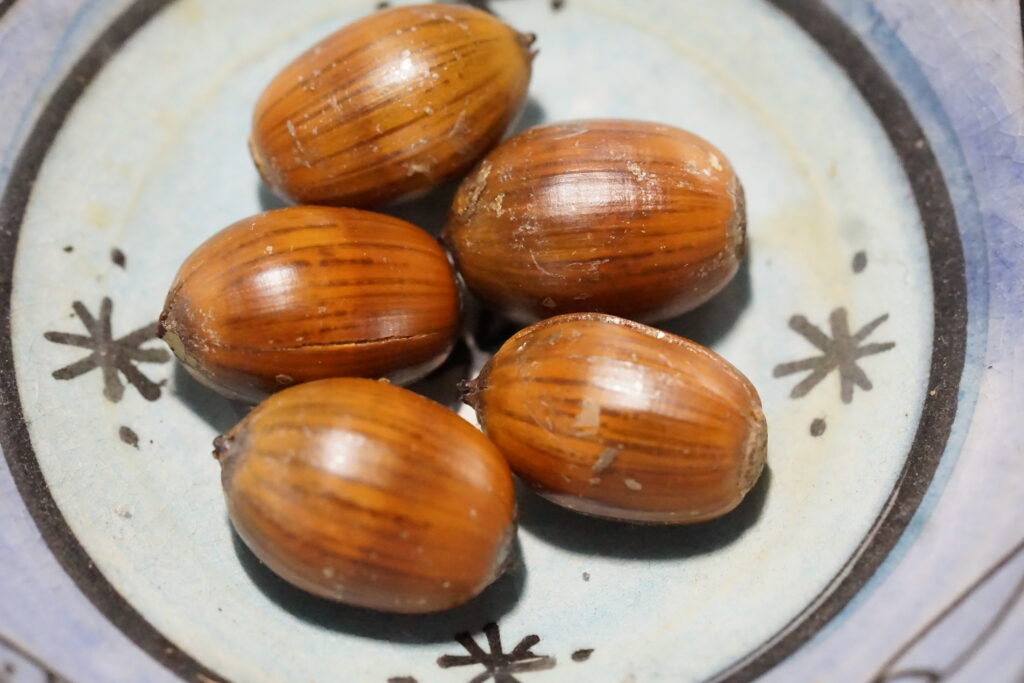
Quercus hartwissiana (Hartwiss oak) is found in regions south and east of the Black Sea. It grows in south-eastern Bulgaria, Anatolia and Caucasia.
It is a deciduous tree that can grow up to 35 meters high.
More info: https://en.wikipedia.org/wiki/Quercus_hartwissiana
In the store: https://quercus.guru/produkt/quercus-hartwissiana/
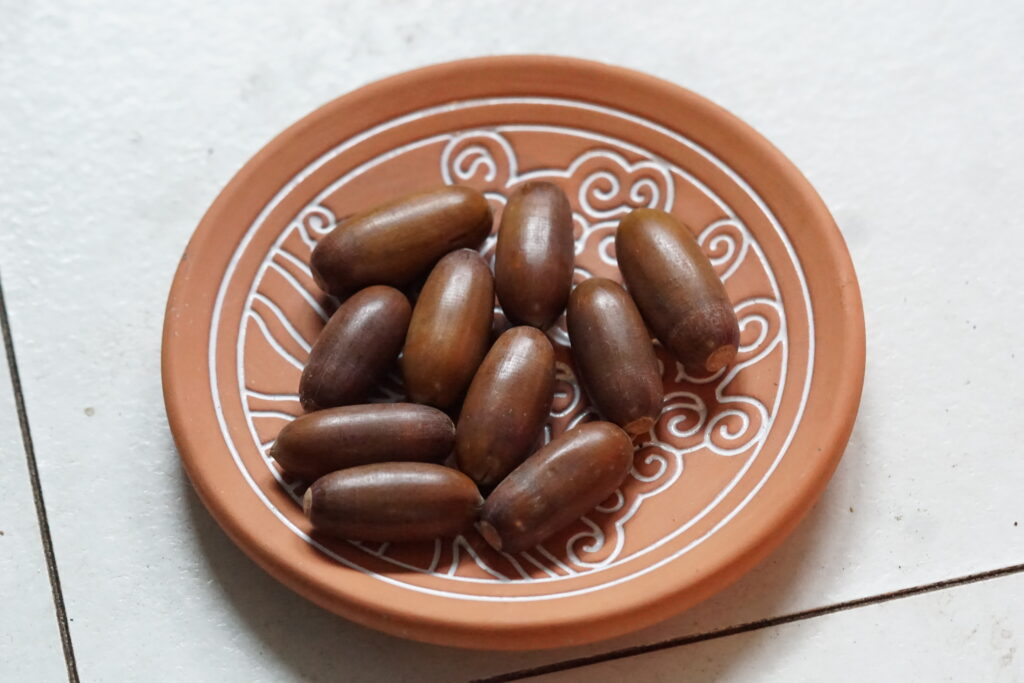
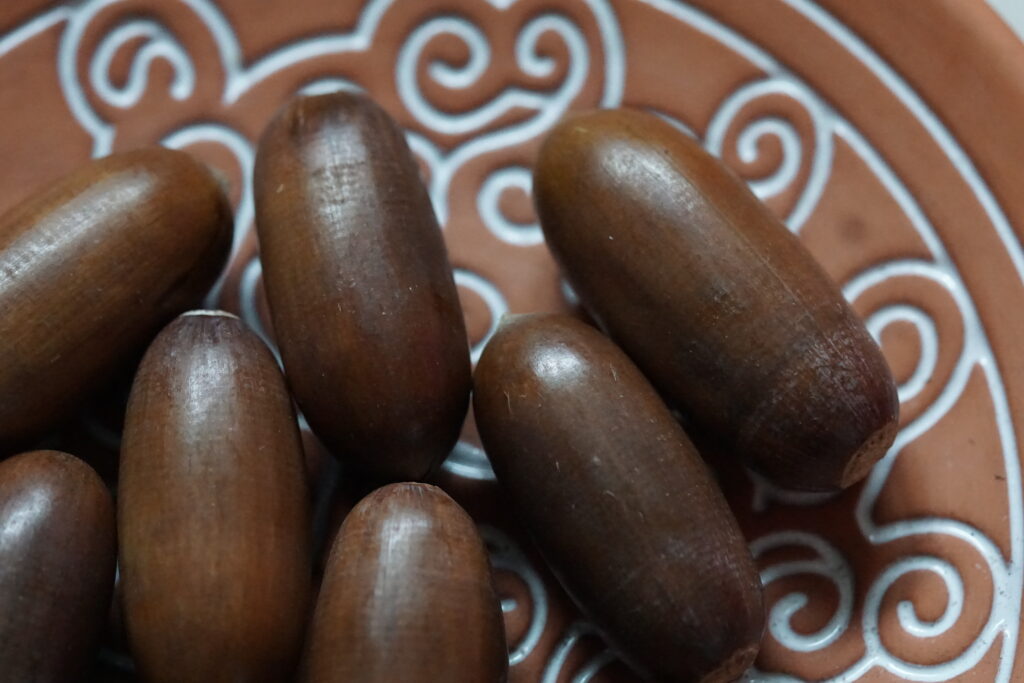
The first acorns of the 2024 season are expected shortly from arboretums/collectors in France and Bulgaria. please subscribe to the newsletter for more information: https://quercus.guru/newsletter/.
Dear people,
The time for acorn deliveries in 2024 is beginning very slowly.
Expected in the next 3 weeks:
Quercus acerifolia
Quercus crassipes
Quercus eduardi
Quercus aff. galeanensis
Quercus x heterophylla
Quercus hirtifolia
Quercus mexicana
Many more species will follow in late fall/winter
Among them will (hopefully) be some real surprises, really great and rare acorns.
In addition, many species from Southern Europe and North Africa.
e.g.
Quercus canariensis
Quercus infectoria subsp. veneris
Quercus alnifolia
Quercus ithaburensis
Quercus kelloggii
Quercus wislizeni
Quercus chrysolepi
Quercus tomentella
Quercus macrocarpa (big)
Hopefully too:
Quercus buckleyii
Quercus comptonae
Quercus falcata
Quercus hemisphaerica
Quercus imbricaria
Quercus laurifolia
Quercus laevis
Quercus lyrata
Quercus margaretta
Quercus marilandica
Quercus muehlenbergii
Quercus nuttallii
Quercus obtusa
Quercus polymorha
Quercus prinus
Quercus prinoides
Quercus shumardii
Quercus stellata
Quercus texana
Quercus velutina
Quercus virginiana
Quercus virginiana fusiformis
…and perhaps a few more surprises (acorns).
Take a look at our store soon: https://quercus.guru/shop/
Planting oak trees is a wonderful hobby. It’s a joy to see the little acorns sprout, to accompany the tender little plants, to nurture and care for them. One day they will grow up and grow old. They will outlive us and we will be able to leave something meaningful to the world.
Several oak species can live for well over 500 years, they provide food for many wild animals, they cool the environment, they can contribute to combating global warming. They provide life and can accompany us for a lifetime.
There is a lot to consider. The quality of the seed, the soil, the method of planting, liming, acidification, protection against too much water (or too little). It is a wonderful task to create and do something for the environment.

